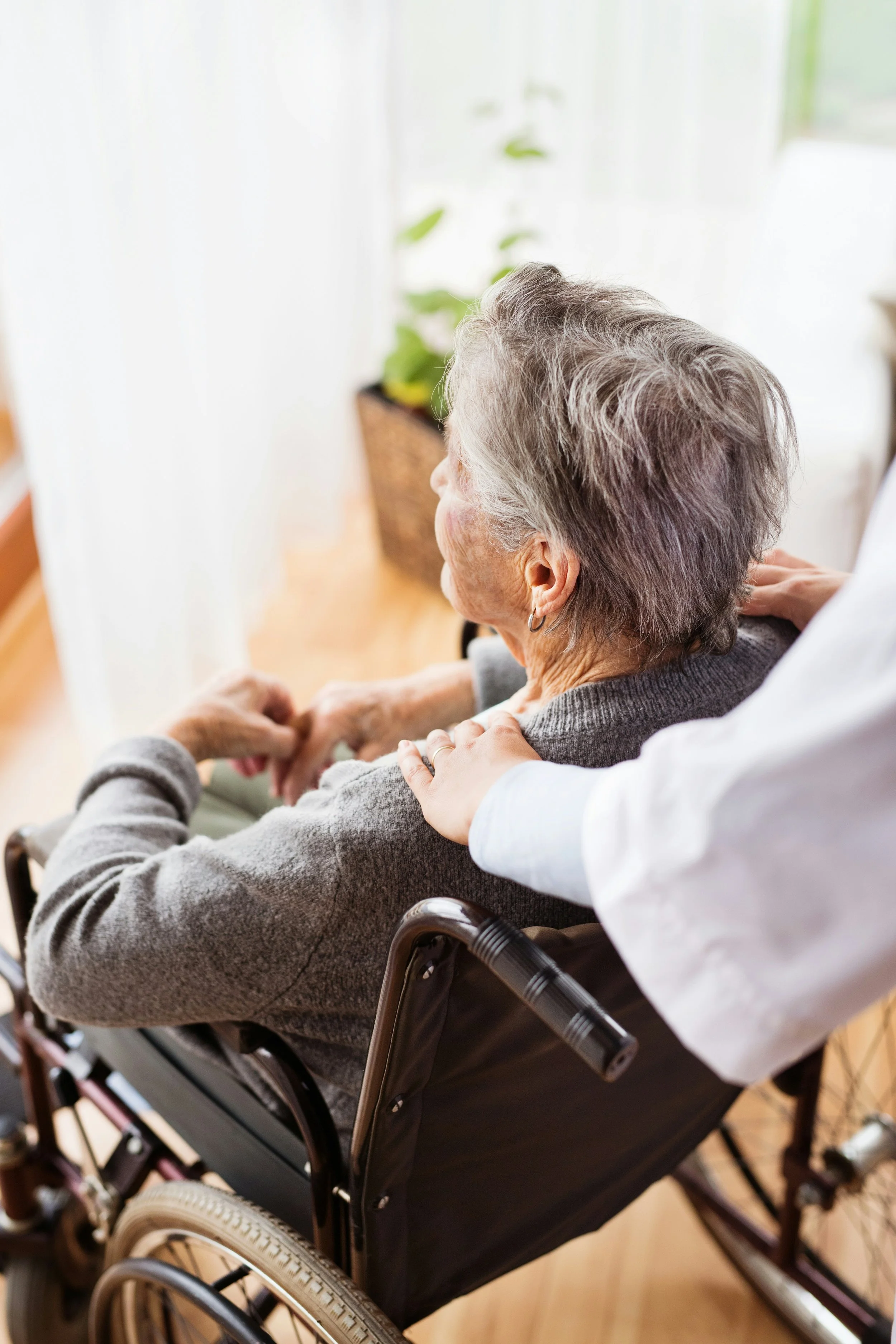Honouring the Whole Person in Every Stage of Life.
In a world that often rushes past the wisdom of age, this workshop offers a gentle pause, a space to reimagine dignified care through the lens of awareness, compassion, and holistic safety.
Whether you're a caregiver, healthcare professional, or family member, the Dignified Care workshop invites you to:
See the person beyond the diagnosis and/or age.
Learn how to centre humanity in every interaction
Create environments of emotional and physical safety
Explore compassionate and dignified approaches that foster trust, comfort, personal power and respect.
Cultivate compassionate presence
Discover practices that deepen connection, reduce caregiver burnout, and elevate the quality of life for everyone involved.
This workshop is more than training — it’s a call to transform all care into a dignified act of shared humanity, support and grace for everyone involved in the caretaking
WORKSHOP TOPICS INCLUDE
Work with each caregiver to support clarity around dignity, frailty, respect and compassion
Equip caregivers with practical tools and strategies to support emotional/mental well-being for all
Key principles of Dignified Care (including ABCD’s of Dignified Care: Attitude; Behaviours; Compassion; Dialogue
Clarity and understanding around the definitions of Dignity, Compassion, Vulnerability and Respect
Strategies for reducing feelings of isolation and enhancing quality of life
The importance of cultural diversity and clarity in caring environments
The Dignified Care workshop will be tailored to the needs of the audience whether 1 or 100 people in attendance.
For more information, please contact me on my Bookings page.
I look forward to hearing from you!
GLOBAL DEMENTIA STATISTICS
Over 55 million people worldwide are currently living with dementia. This number is expected to rise to 78 million by 2030 and 139 million by 2050.
New Cases: Someone in the world develops dementia every 3 seconds, totaling more than 10 million new cases annually.
Gender Disparity: About 65% of dementia-related deaths occur in women.
Leading Cause of Death: Dementia ranks as the 7th leading cause of death globally, with Alzheimer’s disease contributing significantly
Three things not to say to someone with dementia/Alzheimer’s disease:
1.“No”
For example: “No, you cannot touch, eat, handle that.”
Rather, respectfully distract.
For example: “Okay, let me look into this for you and see what I can do.”
Use positive responses whenever possible.
2. Any questions that rely on memory recall
Examples: “Who came to visit you last night?” “What did you have for lunch?” or “When is your birthday?”
Prompts work much better to help connect their memory vs. putting them on the spot and feeling bad about themselves for not being able to answer correctly.
3. “You have dementia”
Some people will accept this about themselves while others will hold on to their denial. Be kind and let them guide you as to how to navigate the symptoms.
You can say things like: “You are such a good driver and today, I’d like to drive you so you can enjoy the car ride.”
Speaking and treating people with dementia as the adults they are deserving of respect with decades of living full lives goes a long way in offering dignified care vs. speaking to them as if they are children.
“It is our absolute pleasure to recommend Lorraine as an outstanding caregiver. She is an incredibly compassionate, caring, responsible, and reliable individual with excellent communication skills. Her work is grounded in heartfelt caregiving and high standards of compassion and empathy, which shine through in every interaction.
She has a unique ability to fit seamlessly into her client’s life, even in situations where receiving care is not easy or welcome. She approaches these moments with patience, understanding, and respect—always honoring the client’s independence while providing the support they need.
Lorraine also demonstrated extraordinary professionalism while caring for two very different seniors who were partners, along with their extended families. She was able to adjust and intuitively sense how each person felt, providing care that respected their differences while still supporting their bond. At the same time, she managed communications from both families with grace, clarity, and understanding. Through it all, she carried herself with remarkable professionalism, balancing multiple dynamics while ensuring both clients felt truly cared for.
Her loving energy naturally brings comfort, and she always makes meaningful connections with people. At the same time, she has the wisdom to understand her role as caregiver while allowing the family to maintain their own routines and relationships. Her humanity makes her not only effective but also deeply appreciated and trusted.
Any family would be fortunate to have Lorraine as part of their care team. She has made an invaluable difference in ours, and I recommend her without hesitation.”
Sincerely,
The Ginther and Watson Family





